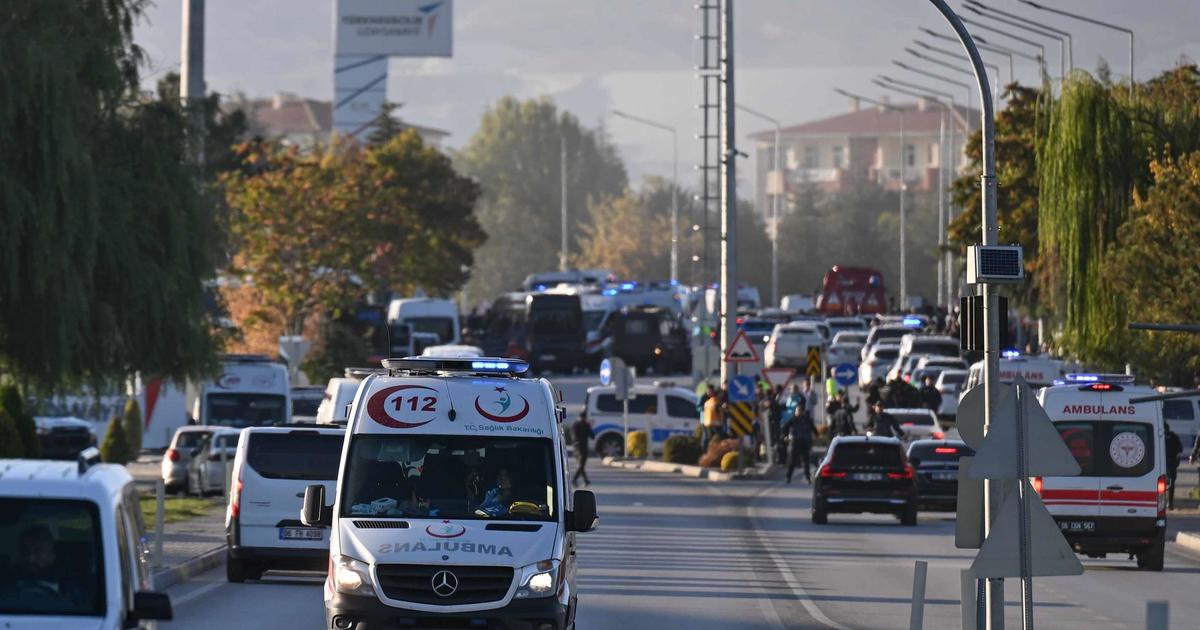Ankara witnessed a devastating attack on the headquarters of Turkish Aerospace Industries (TAI), a leading Turkish defense firm, resulting in tragic loss of life and widespread damage. The incident, which occurred near Ankara, immediately sparked international concern and condemnation, highlighting the ongoing security challenges faced by Turkey. President Erdogan swiftly condemned the attack as a heinous act of terrorism, while global leaders offered their condolences and support. The event underscores the complex security landscape in the region, intertwining domestic conflicts and international implications. The attack also raises serious questions about security protocols at key defense facilities and the potential impact on Turkey’s burgeoning defense industry. The ensuing investigation and countermeasures taken by the Turkish government further illustrate the gravity of this situation and the ongoing battle against terrorism in the region. This incident demands a closer look at its various facets, ranging from the immediate aftermath to the long-term implications for Turkey’s security and international relations.
The Attack on Turkish Aerospace Industries (TAI)
The Casualties and Initial Response
The attack on TAI resulted in the tragic deaths of four individuals, with an additional fourteen sustaining injuries, three of whom were reported to be in critical condition. The swift response from Turkish authorities, including President Erdogan’s immediate condemnation and the Interior Minister’s announcement of the neutralization of two attackers, indicated a serious commitment to addressing the situation. The identification of the attackers and a thorough investigation into their motives remain critical components of the ongoing response. This initial response was crucial in both managing the immediate crisis and setting the stage for the investigation and any subsequent security measures. However, the limited details released initially raised concerns about the lack of information flow and potential lack of preparedness to manage such critical security incidents, with various media reports initially reporting conflicting details about the specifics and scope of the situation.
The Attack’s Context: Ongoing Conflicts and Geopolitical Tensions
The attack occurs within the broader context of Turkey’s ongoing struggle against Kurdish insurgent groups, primarily the Kurdistan Workers’ Party (PKK), and its involvement in regional conflicts, including the Syrian civil war. The PKK is designated as a terrorist organization by Turkey, the United States, and the European Union, highlighting the international dimension of this conflict. The Turkish government’s subsequent airstrikes targeting PKK positions in northern Iraq and Syria further emphasized the ongoing nature of this conflict and the government’s determination to retaliate against the perpetrators or groups it suspects of being responsible. The geographical location of the TAI facility, situated close to Ankara, is symbolic and suggests potential strategic targeting. This context provides a critical background to fully comprehend the security threat. These intertwined conflicts increase the complexities around identifying responsible parties and the subsequent retaliatory efforts of the Turkish government.
The Aftermath and International Response
Media Blackout and Information Control
In the aftermath of the attack, a media blackout was imposed by Turkey’s media watchdog, halting the live broadcasts from the scene. This move raises concerns about transparency and the potential control of information surrounding a significant national security event. While it may have initially sought to avoid unnecessary panic or the spread of misinformation, the action could hinder an open investigation and raise suspicion among those critical of governmental actions. Understanding the government’s intentions and examining the extent of this information control requires further scrutiny of governmental announcements and policy decisions in the days to follow. Transparency in the future, alongside better communication channels, can effectively resolve and improve responses to similar future security challenges.
Global Condemnation and Expressions of Solidarity
The attack drew international condemnation from various world leaders and nations, including President Putin of Russia, underscoring the global impact and implications of such incidents. This broad spectrum of global condemnation underlines the significant concerns about terrorism and instability in the region. This global response also signifies potential impacts on relations between Turkey and different international actors. The ongoing collaborative international approach against global terrorism will impact subsequent efforts to investigate the events.
Implications for Turkey’s Defense Industry and Economy
Impact on Defense Sector Operations
The attack on TAI, a leading defense firm responsible for a significant portion of Turkey’s defense exports, carries notable implications for its overall operations and production. This incident could also raise concerns about the security measures and procedures in place for safeguarding national defense assets. Understanding the impacts of this disruption on the security, manufacturing process, and the broader defence industrial supply chain requires deeper investigations into their operational structure. This assessment should evaluate and improve overall operations and increase safeguards. The impact on the broader defence industry is still being assessed.
Economic and Export Ramifications
Turkey’s defense sector is a key contributor to its national economy, making up nearly 80% of export revenues, expected to exceed $10.2 billion in 2023. Any disruption caused by the attack, whether operational or in terms of investor confidence, could have serious consequences for the country’s economic performance. This sector’s direct contributions to the national economy makes it imperative to have secure measures implemented to effectively manage and safeguard future investments. Longer-term impacts could influence international investment decisions and relationships and consequently have broad implications on national economic stability and performance.
Take Away Points:
- The attack on TAI underscores the ongoing security challenges facing Turkey, highlighting the complexities of regional conflicts and the threat of terrorism.
- The government’s response, including counter-attacks and information control measures, reveals differing governmental priorities in response to crisis management and information dissemination.
- The international condemnation and expressions of solidarity highlight the global significance of the event.
- The attack could have significant implications for Turkey’s defense sector and national economy, impacting operations, exports, and investor confidence. Further, an objective investigation into the cause and perpetrators remains necessary.




